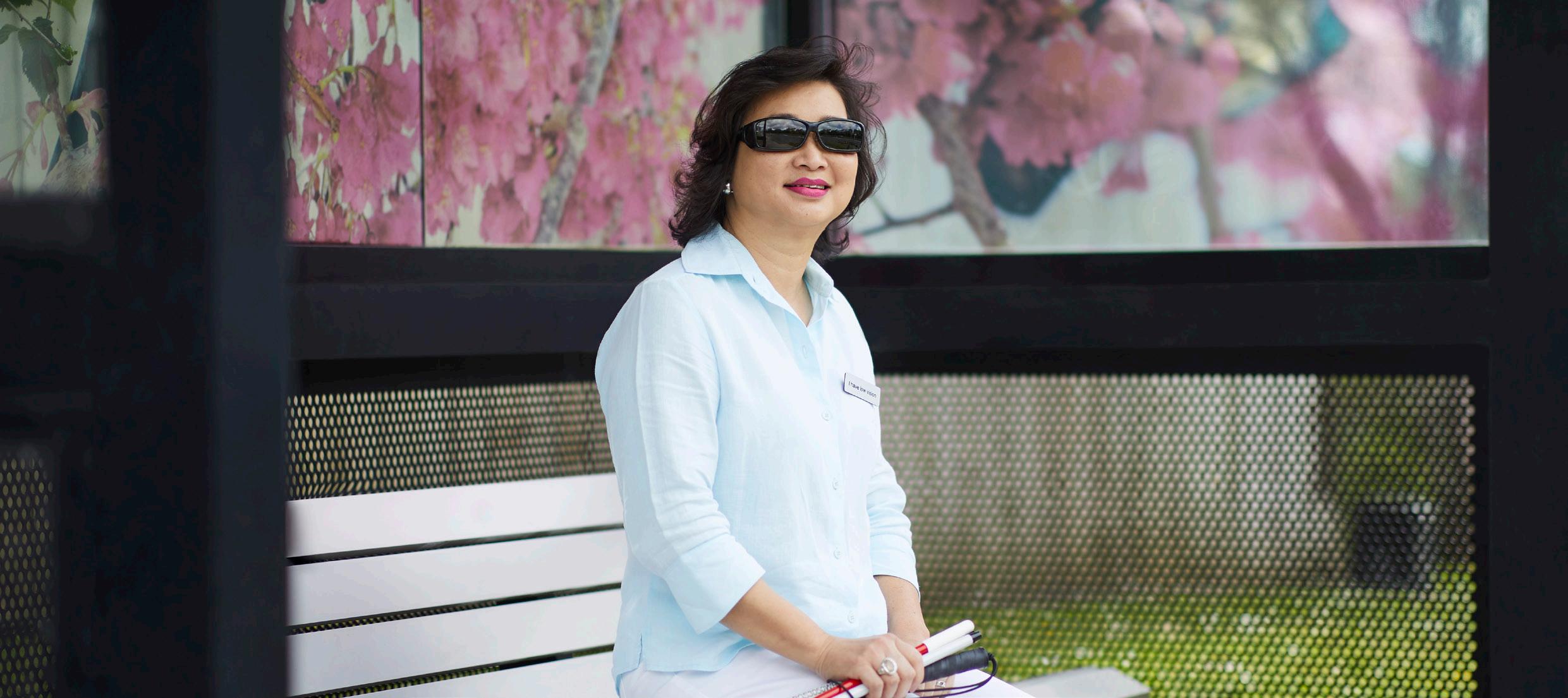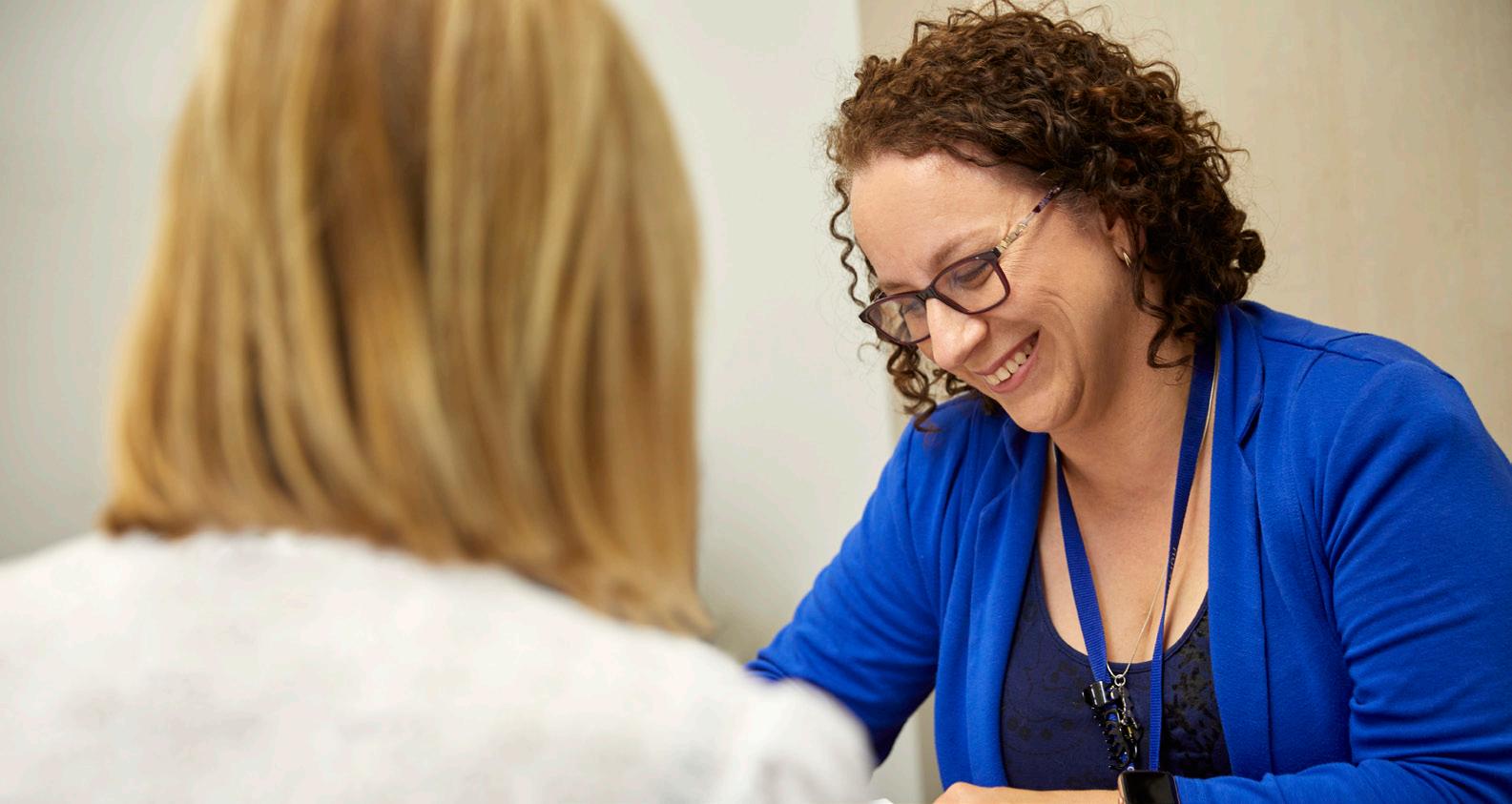
6 minute read
Diversity & Inclusion: Could NZ become more inclusive post COVID-19?
Lisa Oakley, People and Culture General Manager at Blind Low Vision NZ, looks at the silver lining of COVID-19: how it could accelerate the future of work and what that means for people with disabilities.
Organisations have had to develop at a rapid pace to respond to COVID-19 and play their part at stopping its spread. At Blind Low Vision NZ, in just 48 hours of the Level 4 lockdown being announced, 95 per cent of our workforce was up and running to work remotely. Organisations have been forced to be agile and respond quickly to a situation that is going to have a long-lasting impact on our economy, industries, organisations, families and way of life for years to come. While its effect is devastating, it shows what is possible when we are forced to work together to achieve a common goal and what could be possible in a post-COVID-19 world.
Technological disruption has become more familiar in the past decade. Still, the speed of transformation triggered almost overnight as a result of COVID-19 will radically redefine the future of life and work. Some things are certain. How we as individuals choose to respond and how we manage ourselves and our teams to influence institutions and organisations around us to prepare for our future in a post-COVID-19 world are all within our control. This is a character-defining moment for humanity – do we react and panic, or do we respond and adapt? The human species is known for defying odds when it comes to adaption. No one understands that better than a person with a disability who has often had to adapt to different circumstances daily.
Since working at Blind Low Vision NZ, I have witnessed people adapting to sight loss. It is not the end, but the beginning as people navigate doing things in a different way. Whether that’s getting around using a mobility aid like a white cane or guide dog, or using a screen-reader and adaptive technology so that they can continue working and participating in society on an equal footing.
COVID-19 has revealed an uncomfortable truth about equality in our labour market and social systems. Our collective response to support our most vulnerable citizens is crucial, and we have a unique opportunity to respond to some unsettling figures.
Research conducted by Blind Low Vision NZ, the CNIB Foundation and Vision Australia shows that only 32 per cent of New Zealanders with sight loss are in full-time employment. In contrast, the rate of employment in the general population is double that. The New Zealand unemployment forecast is set to surge between 10 per cent and 30 per cent, leaving even fewer opportunities for those with disabilities.

The situation in the United Kingdom is not dissimilar. Looking at disability more widely, only 6 per cent of young people with learning difficulties are in employment, and according to Disability Rights UK, employees with disabilities earn less than non-disabled workers. What’s more, a Department for Education (UK) Green Paper, Support and Aspiration, found less than one in 20 people with a mental or physical disability are in paid employment.
We are seeing organisations respond rapidly to the impacts of COVID-19 with widespread virtual work practices that have, for decades, been quoted as barriers to engagement for disabled persons. This presents an opportunity to shape a fairer future of work and to use digital communication tools to allow people with disabilities to participate fully in the workforce.
Now is the time for momentum on an inclusion revolution in our response and recovery efforts. The International Labour Organization, World Health Organization and United Nations Convention on the Rights of Persons with Disabilities explain the impact of the current crisis for people with disabilities requires attention, to ensure that those with disabilities are not left behind. This response must include social justice, effective inclusion, equality of opportunities and decent work.
What’s more, many disabled people have learnt the skills needed to be effective in response to crises. They are not defined by their disability, but by their ability. They know how to adapt and respond to change, often continuously. This requires resilience, innovation and creativity. I would like to suggest that there is no better time than now for society to learn from people with disabilities and that it is more important than ever before in creating inclusive and diverse work environments.
We knew the fourth industrial revolution was here, and now it has transported itself into our very own living rooms and home offices and to our dining tables. It is here, and it is here to stay. Organisations and employers will continue to challenge norms in the way they do business. Advancement in automation and robotics will continue, and research suggests this opportunity will create as many jobs as it intends to displace. Employees and individuals will do well to develop plans to upskill and respond positively. Great masterpieces have come from quarantine, like Shakespeare’s King Lear, which was written during quarantine from the London plague. When we devote time to rest and think, we can learn, grow and create and, in doing so, upskill ourselves for the new world of work. How society supports vulnerable people and ensures inclusion in this future of work for people with disabilities will be critical to New Zealand’s economic recovery. Let’s be led by, not leave behind, those who may have the key to unlocking our future success.
Ways to engage people with disabilities in employment
• Educate yourself on how to make workplace adjustments, from IT adaptations to working with a support person or interpreter.
• Review your recruitment and promotion policies to ensure they are referring to ‘potential’ as well as to specific qualifications (that may not be relevant) and experience.
• Talk to candidates about how to adapt interviews to help those with disabilities.
• Have senior people speak about their own experience of disability and about the value to the company of being inclusive.
• Review the language you use when speaking with a person with a disability – is it different from when speaking to an able-bodied person? Make adjustments to correct unconscious biases.
What we did for our people at Blind Low Vision NZ in the run-up to the Level 4 lockdown
• We established a crisis management team to respond to COVID-19, which met daily to discuss key updates. • We were able to get 95 per cent of our workforce up and running to work from home in 48 hours after Alert Level 4 started.
• Blind Low Vision NZ is an essential service and, where possible, we continue to deliver our vital service remotely using video-calling, such as Zoom, or the phone.
• Many eye conditions develop later in life and we know technology is a massive barrier for people who are blind or have low vision – only 53 per cent of our clients have an email address – our frontline employees are phoning clients to check on their health and wellbeing and make sure they have access to essential services.
• We extended our National Contact Centre hours from 8am to 8pm, to offer support to our clients during the COVID-19 crisis.
Lisa Oakley (BCom, MMgmt, PGdipBusAdmin, CFHRINZ, CAHRI) is a Board member and National Vice President of HRNZ, and Director of Love Your Work NZ.
Love Your Work NZ offers customised solutions to people and performance needs through HR consultancy and project work. Lisa has 15-plus years’ experience in human resources and health, safety and environment in large-scale service environments in a range of industry sectors. She is currently studying towards her GradDip in Occupational Health and Safety. Contact Lisa via LinkedIn.










